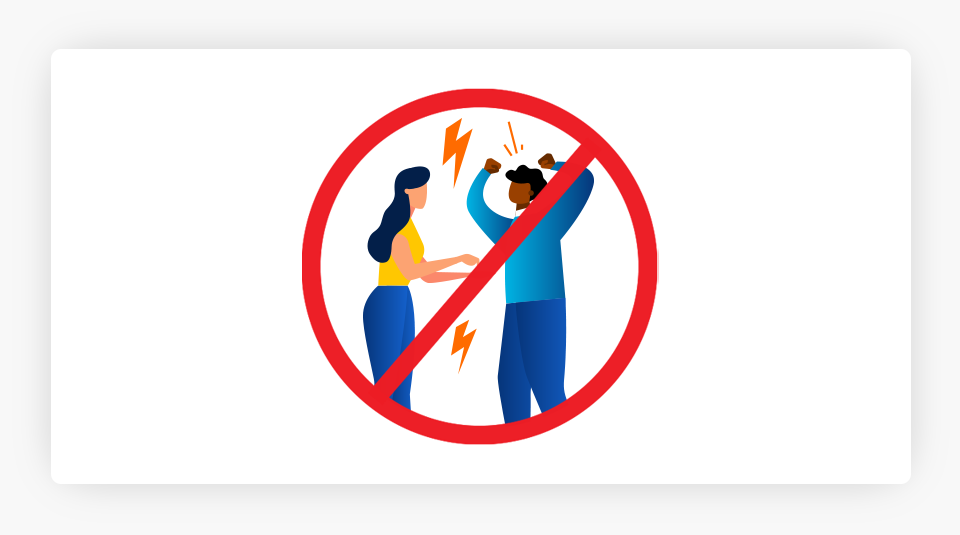We can’t send you updates from Justia Onward without your email.
Unsubscribe at any time.
You know social media is an important part of a comprehensive legal marketing plan that is here to stay. In this post, we offer four strategies for managing your law firm’s reputation on social media.
According to Pew Research data about American adults, in February 2021 84% of people aged 18-28, 81% of people between the ages of 30-49, 73% of adults ages 50-64, and 45% of adults over the age of 65 were on social media. This means that a significant portion of your potential clients are already on social media – and more very well may be there in the future. Therefore, social media strategies are inarguably an important part of a robust, well-developed legal marketing plan.
The double-edged sword of social media is the opportunity for engagement with other users. Engaging with clients, potential clients, and the community on social media is a great opportunity for building brand authenticity for your law firm and boosting public trust. Social media allows you to leverage social proof from happy clients in your marketing efforts and offers a unique way to connect with potential clients in the course of their daily lives.
However, social media horror stories are also rampant in our society. Anyone who has watched the news in recent months (and even years) has probably heard stories of “cancel culture” where one past mistake or inadvertent word can mean a quick demise for people and businesses. If you are a social media user, then you likely have seen the chaos that is the comment section.
For these reasons, social media is often seen as a beast for reputation management, but it certainly doesn’t have to be. Keep reading this post for tips and strategies designed to help you efficiently manage your reputation in the world of social media.
Rule No. 1: Don’t Feed the Troll

The number one rule of dealing with social media criticism is not to feed the troll. In other words, do not get into unwarranted fights with internet strangers. Fighting or arguing on social media never works in favor of the attorney. Even when you are technically “right”, it is nearly impossible to get the last word in. Moreover, you are much more likely to run afoul of your professional and ethical obligations if you get into a heated online debate.
Rule No. 2: Don’t Create Controversy

When it comes to social media, one of the first steps in your reputation management plan should be to avoid controversy. Unless it is unavoidable for some reason relating to your practice, your firm should not post about politics and controversial issues that are likely to spark negative discussion.
Likewise, lawyers should carefully consider the impact of engagement with hot-topic issues from their personal profiles. You should never post any content on social media that you would not want to be seen by anyone in the world – whether that be your grandmother, your boss, or a stranger.
Rule No. 3: Do Handle Your Reviews

Like many other places on the internet, some social media sites allow users to review businesses, including law firms and lawyers. This means you must have a plan for managing your reviews. Luckily, the best approach to managing social media reviews is to follow a similar plan to the one you use for general online reviews.
First, you should stay informed. Monitor your reviews, so that you know what is being said about your practice. Keep an eye out for false reviews or reviews that otherwise violate the platform’s community standards, so that you can request removal. Proactively seek out positive reviews from happy former clients. Reply to positive reviews and offer a touch of good customer service in response to negative reviews. For in-depth review management strategies, check out our previous post on search results reputation management.
Rule No. 4: Do Have a Comment Management Plan
![]()
Even if you manage to avoid any missteps in the content you post or engage with, you may still find yourself on the receiving end of negative social media commentary that evolves into a crisis. This is a situation where a little preparedness goes a long way.
Know how you will handle criticism before it happens. For many years, conventional marketing wisdom suggested that you never ignore negative comments on your social media accounts. However, general comments are not the same as true reviews, and this tried and true rule is not always true. Sometimes the sheer volume of comments makes it impossible to effectively respond to every negative statement. In other instances, a negative comment simply does not warrant a response.
When developing your crisis management plan, it is important to remember the unique nature of social media and the unique nature of the legal business. Social media is a rapidly changing space where trends come and go. Content goes viral and then fades away. People often see a post in their feed only once or twice. At the same time, lawyers have a unique set of ethical obligations that do not impact other businesses.
As such, the first thing a legal professional should consider when approaching negative social media commentary is whether a response is warranted or a negative comment should be disregarded. Responding or otherwise calling attention to the negative engagement may only serve to extend the longevity of its impact by bringing the commentary continually back to the top of the feed. Additionally, your hands may be tied in a way that prevents you from adequately responding in the way another business may.
This is not to say you cannot take action to mitigate the impact of negative commentary. You should have a prearranged plan for the type of professional response you will give to comments that warrant a reply. Have someone else on your team look it over before posting (if possible) to make sure it is easily understood and your tone is not misconstrued.
As an alternative to responding and ignoring, you may want to consider simply removing the offending commentary, if it is made in a forum where you have control over what is being said, such as in the comments on your own post. However, if you choose to go this route, you must be aware that this will only reenergize some commenters to push the issue further with a new comment. In such a case, you will need to be prepared with a well-thought-out response.
A Hypothetical Case Study: Negative Commentary in Action

Take a brief step back to your law school days and consider a hypothetical: the case of Smith & Doe, A Professional Law Corporation. Smith & Doe specializes in personal injury cases. The firm maintains a widespread marketing campaign that includes television ads and billboards. It also has a strong social media presence and shares informative posts about the law on its Facebook page.
Steve, who has never been a client of Smith & Doe, simply doesn’t like the firm. He comments on one of Smith & Doe’s Facebook posts claiming that the firm doesn’t know anything about personal injury law, arguing that the shared blog post is inaccurate, and even ranting that the attorney who wrote the blog is completely inept. While Smith & Doe knows it should not engage in the debate, it does want to reduce the impact of Steve’s comments. What can Smith & Doe do?
Should you find yourself in a similar scenario to Smith & Doe, you should first consider whether you can fix the problem. In this hypothetical, Steve complains that the blog post is poorly written and inaccurate. Therefore, the first thing Smith & Doe can do is ensure that Steve is wrong.
No rule requires internet content to be static. Regardless of whether the original post was inaccurate, the firm can make sure that this is now the best piece of legal writing available on the internet. Once the post is in tip-top condition, anyone who reads the post and sees Steve’s commentary will simply think Steve is wrong.
If your law firm finds it necessary under the circumstances, they can always take things one step further and respond to the negative comment. However, the firm should proceed with extreme caution. The response should be polite, professional, and brief. You never want to write anything you would not want to go viral, and you must always remain aware of your professional and ethical obligations.
Within this guidance, you could make any response that is appropriate for the situation. For example, you could offer a sincere apology to the commenter for any misunderstanding. If permitted under your bar association’s ethical rules and applicable in the situation, you could comment that the person was not a client or respond that a post was inaccurate. You could also adopt a generic response that indicates you cannot appropriately respond in a public forum due to your ethical obligations but ask that the commenter contact you directly to discuss the issue and appropriate resolution. Whatever response you choose, make sure it is well-written, professional, and fully compliant with your ethical obligations.
Final Thoughts: Why Do You Care?
Your clients and potential clients are likely on social media. Because this reality is not likely to change any time soon, social media planning needs to be a part of your comprehensive marketing strategy. Taking a proactive approach to managing your reputation on social media helps you avoid future issues and creates a strong foundation upon which you can build a response plan if you face unexpected problems on social media sites.
